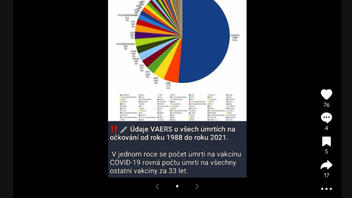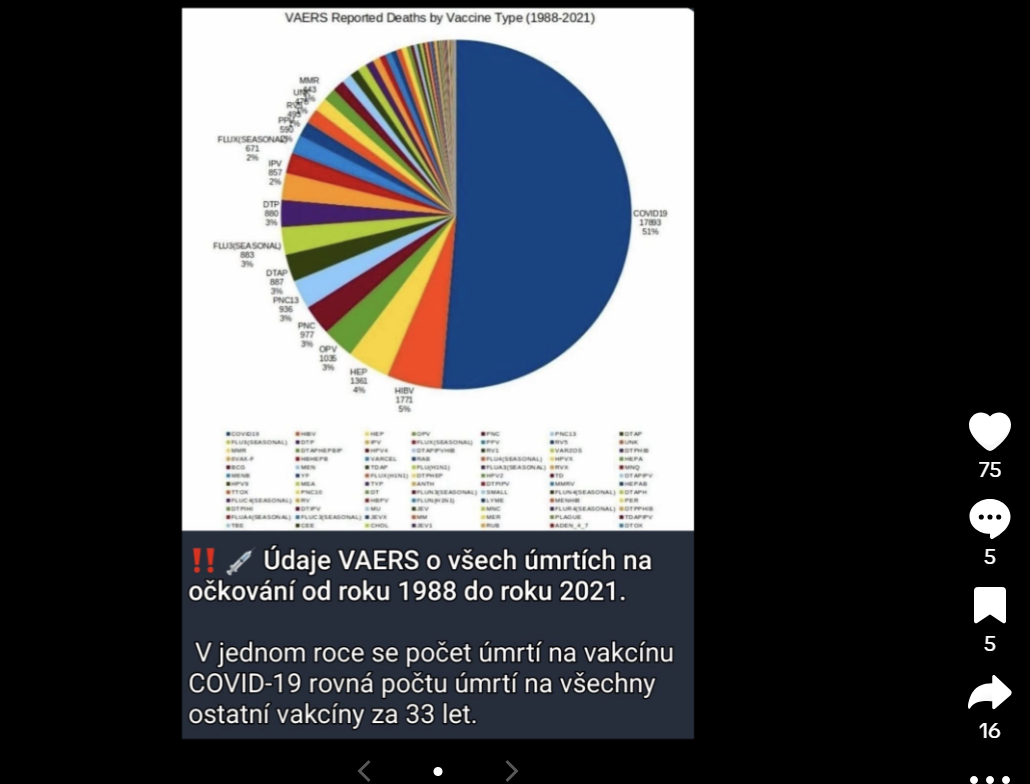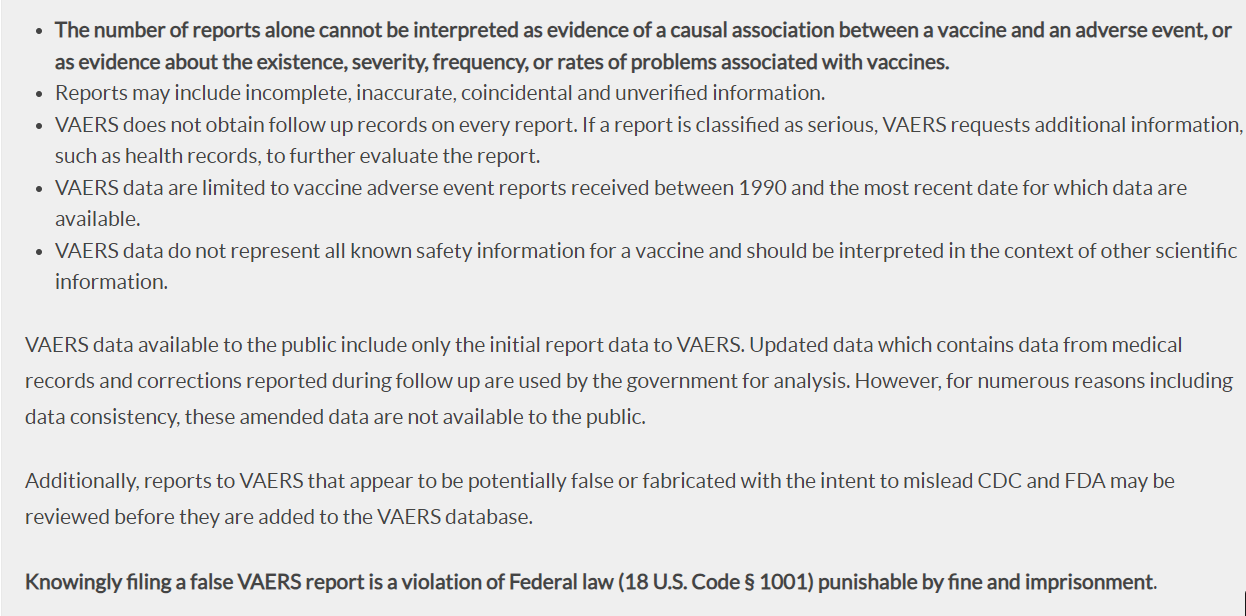
Do data from the Vaccine Adverse Event Reporting System, or VAERS, prove that COVID-19 vaccines have caused more deaths than all other vaccines together, "since 1988 when the reporting system was set up" until 2021? No, that's not true: VAERS is an online database that anyone can access to submit a report of a suspected adverse reaction after a vaccination. These reports, though, have to be verified by experts to establish a proven connection between the vaccine and the reported event, and cannot be used by themselves to determine if a vaccine caused or contributed to an adverse event or illness.
The claim appeared in a video (archived here) on TikTok on February 18, 2024. It contained a screenshot of a graphic with alleged VAERS data from 1988 to 2021 and text (translated from Czech to English by Lead Stories staff) that read:
In one year, the number of deaths from a COVID-19 vaccine equals the number of deaths from all other vaccines in 33 years.
This is what the post looked like on TikTok at the time of writing:
(Source: TikTok screenshot taken on Tue Feb 22 10:03:21 2024 UTC)
The Centers for Disease Control and Prevention (CDC) and the U.S. Food and Drug Administration (FDA) jointly established VAERS (archived here) in 1990, as an open tool for people to report post-vaccination health problems to monitor vaccine safety, after their approval. Anyone can submit a report, from the public to vaccine manufacturers or health care providers. The system contains many reports that may be false, biased, unverifiable, incomplete or unrelated to the vaccine, but it is designed to detect patterns in reporting that may suggest further evaluation of the vaccine. Such post-marketing surveillance through VAERS played a role, for example, in the withdrawal of the previously FDA-approved infant rotavirus vaccine Rotashield in 1999 (archived here).
Since then, the reporting system has been often used in misinformation campaigns against vaccines (archived here). Misinformation posts citing VAERS data omit the fact that VAERS data are raw and need to be verified by experts. VAERS has a clear disclaimer saying that information may be "incomplete, inaccurate, coincidental, or unverifiable" and warns that VAERS data should be "interpreted in the context of other scientific information."
(Source: VAERS website screenshot taken on Tue Feb 22 11:54:21 2024 UTC)
The explanation of VAERS data and its misuse on social media, or elsewhere, when used as proof, casting doubt on the safety of vaccines, has also been explained by medical, university professionals, and scholars here (archived here), here (archived here) and here (archived here).
Lead Stories has fact checked claims on VAERS data and vaccine safety before, such as here and here.








